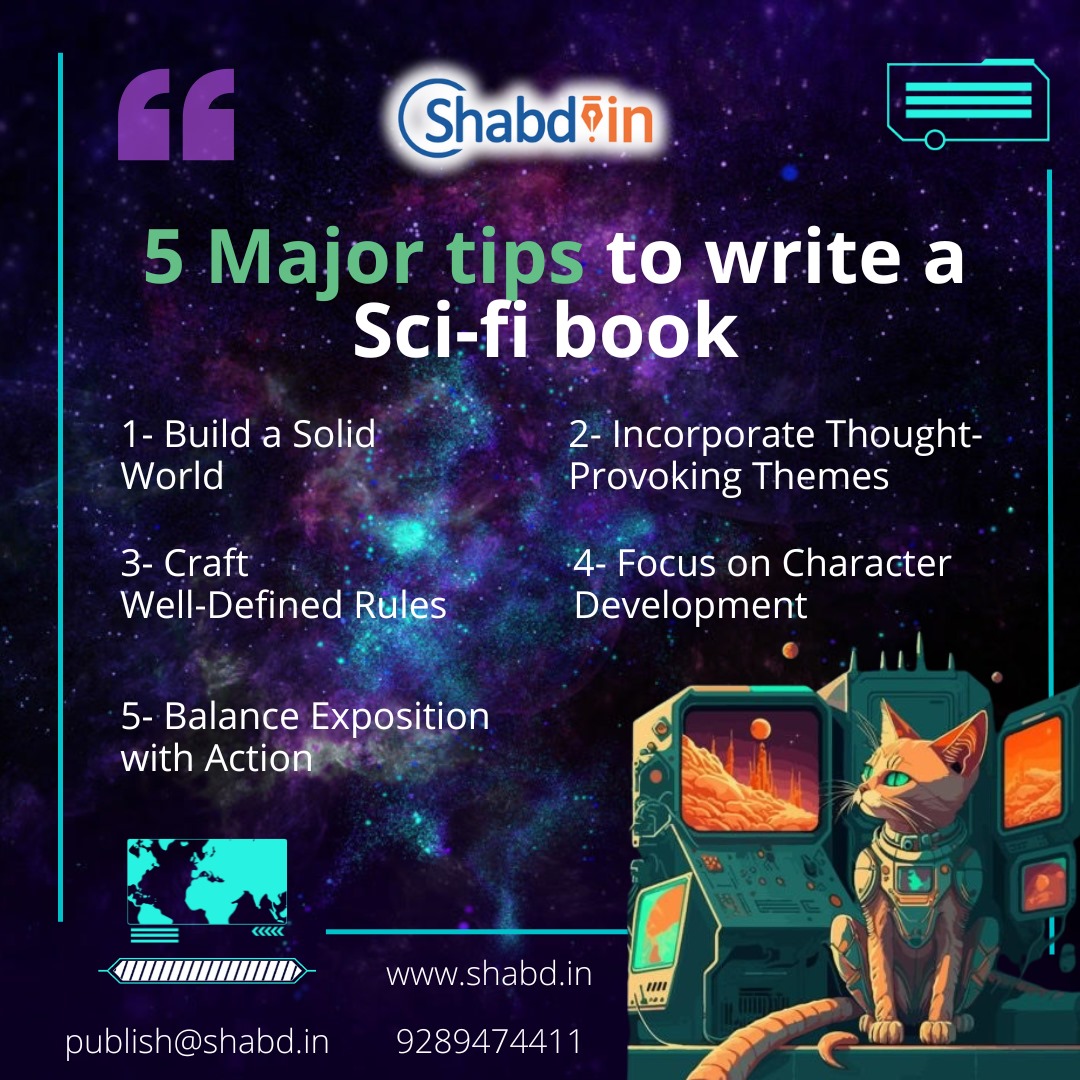These are excellent tips for writing a sci-fi book! Let me expand on each one for more depth:
1. Build a Solid World (Expand Beyond the Basics):
- Consider History & Culture: Think about how the world’s past shapes its present. What are the cultural norms, religions, and political structures? How has technology or alien encounters shaped these aspects?
- Diversity of Settings: Sci-fi worlds often span galaxies or include different planets or societies. Make each location feel distinct, with its own geography, climate, and people.
- Technology & Innovation: Explore how technology affects everyday life, social structure, and relationships. Consider innovations like AI, space travel, or futuristic healthcare systems, and think through their ethical and moral impacts.
2. Incorporate Thought-Provoking Themes (Layer Deeper Meanings):
- Ethics of Science: Explore the consequences of unchecked scientific discovery, like AI surpassing human intelligence, genetic engineering, or life extension. Ask moral questions about the balance between progress and humanity.
- Social Commentary: Sci-fi can be an allegory for modern issues like climate change, inequality, or government surveillance. Use futuristic scenarios to hold a mirror up to contemporary problems, forcing readers to reflect on current realities.
3. Craft Well-Defined Rules (Science & Speculation):
- Establish Physical & Societal Laws: Whether you’re dealing with space travel, alternate dimensions, or alien species, your world needs rules. Are faster-than-light travel and telekinesis possible? If so, how do they work? Set the boundaries early and stay consistent.
- Explain Science, Don’t Lecture: It’s important to have plausible science, but avoid overwhelming readers with technical jargon. Integrate the science seamlessly into the story, showing how it functions through character interactions and world events.
4. Focus on Character Development (Relatable Characters in Extraordinary Worlds):
- Complexity Over Archetypes: It’s easy to fall into classic sci-fi character tropes like the rogue space captain or the genius scientist. Give your characters depth—let them have flaws, personal goals, and emotional arcs. They should evolve as they interact with your world.
- Relationships Matter: Even in a futuristic setting, human emotions and relationships remain universal. Whether it’s love, friendship, or rivalry, make sure these dynamics drive your story forward. Your characters’ interpersonal struggles should be as compelling as the cosmic conflicts.
5. Balance Exposition with Action (Show, Don’t Tell):
- Reveal Through Action: Instead of dumping all the backstory and rules of your world in one go, let them unfold through your characters’ experiences. For example, show how a piece of tech works by having your character use it in a tense situation rather than explaining it outright.
- Pacing: Keep a steady rhythm between slower, introspective moments and fast-paced action scenes. Readers need breathing room to absorb the world-building but also crave excitement to keep them turning the pages.
Additionally, research can help ground your speculative ideas in reality. Reading about current advancements in space travel, artificial intelligence, or genetic research can inspire more plausible and grounded futuristic technologies.
Lastly, sci-fi allows you to push boundaries. Embrace creativity, but always anchor it in compelling storytelling and relatable characters. For further reading, platforms like Amazon Kindle or Shabd.in have a great selection of sci-fi books to explore!

